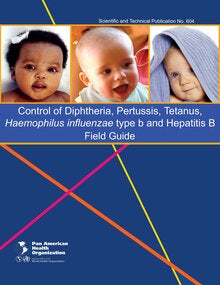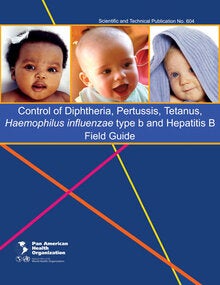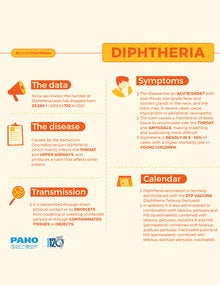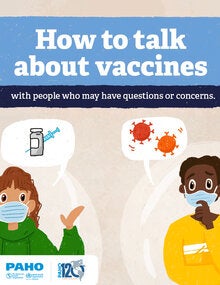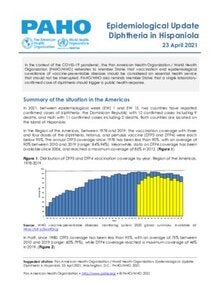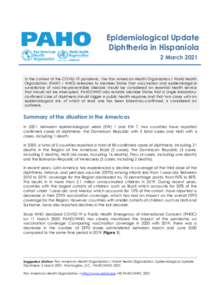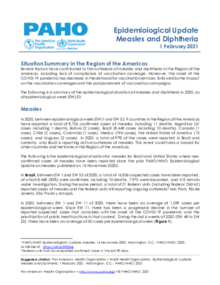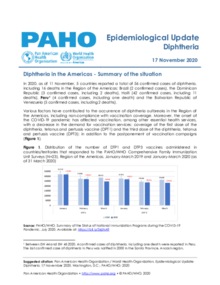Diphtheria is an infectious disease caused by the bacterium Corynebacterium diphtheriae. While it primarily infects the throat and upper airways, it can also affect the skin and other mucous membranes. The bacterium produces a toxin that affects different organs. The illness has an acute onset and the main characteristics are sore throat, mild fever, and the toxin can, in severe cases, cause myocarditis or peripheral neuropathy. Swelling in the neck can happen when neck tissues become inflamed and lymph nodes enlarge. In severe cases, this swelling can lead to a life-threatening airway obstruction and difficulty breathing
The diphtheria toxin causes a membrane of dead tissue to build up over the throat and tonsils, making breathing and swallowing difficult. The disease is spread through direct physical contact or from breathing in the aerosolized secretions from coughs or sneezes of infected individuals.
Vaccination against diphtheria has reduced the mortality and morbidity of diphtheria dramatically, however diphtheria is still a significant child health problem in countries with poor vaccination coverage.
In countries endemic for diphtheria, the disease occurs mostly as sporadic cases or in small outbreaks. Diphtheria is fatal in 5 - 10% of cases, with a higher mortality rate in young children. Treatment involves administering diphtheria antitoxin to neutralize the effects of the toxin, as well as antibiotics to kill the bacteria.
Diphtheria vaccine is a bacterial toxoid, ie. a toxin whose toxicity has been inactivated. The vaccine is normally given in combination with other vaccines as DTwP/DTaP vaccine or pentavalent vaccine. For adolescents and adults the diphtheria toxoid is frequently combined with tetanus toxoid in lower concentration (Td vaccine).





